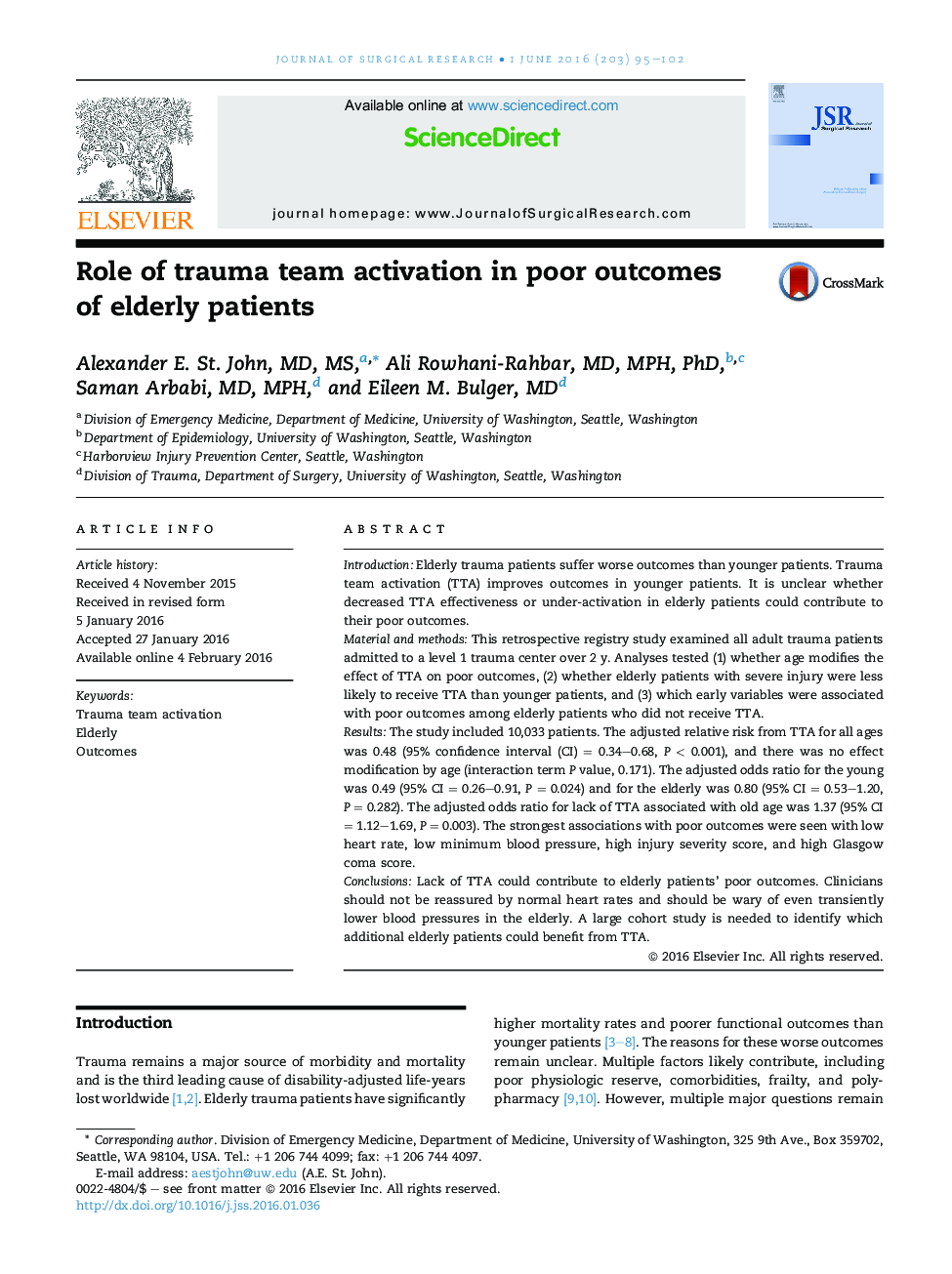| Article ID | Journal | Published Year | Pages | File Type |
|---|---|---|---|---|
| 4299206 | Journal of Surgical Research | 2016 | 8 Pages |
IntroductionElderly trauma patients suffer worse outcomes than younger patients. Trauma team activation (TTA) improves outcomes in younger patients. It is unclear whether decreased TTA effectiveness or under-activation in elderly patients could contribute to their poor outcomes.Material and methodsThis retrospective registry study examined all adult trauma patients admitted to a level 1 trauma center over 2 y. Analyses tested (1) whether age modifies the effect of TTA on poor outcomes, (2) whether elderly patients with severe injury were less likely to receive TTA than younger patients, and (3) which early variables were associated with poor outcomes among elderly patients who did not receive TTA.ResultsThe study included 10,033 patients. The adjusted relative risk from TTA for all ages was 0.48 (95% confidence interval (CI) = 0.34–0.68, P < 0.001), and there was no effect modification by age (interaction term P value, 0.171). The adjusted odds ratio for the young was 0.49 (95% CI = 0.26–0.91, P = 0.024) and for the elderly was 0.80 (95% CI = 0.53–1.20, P = 0.282). The adjusted odds ratio for lack of TTA associated with old age was 1.37 (95% CI = 1.12–1.69, P = 0.003). The strongest associations with poor outcomes were seen with low heart rate, low minimum blood pressure, high injury severity score, and high Glasgow coma score.ConclusionsLack of TTA could contribute to elderly patients' poor outcomes. Clinicians should not be reassured by normal heart rates and should be wary of even transiently lower blood pressures in the elderly. A large cohort study is needed to identify which additional elderly patients could benefit from TTA.
